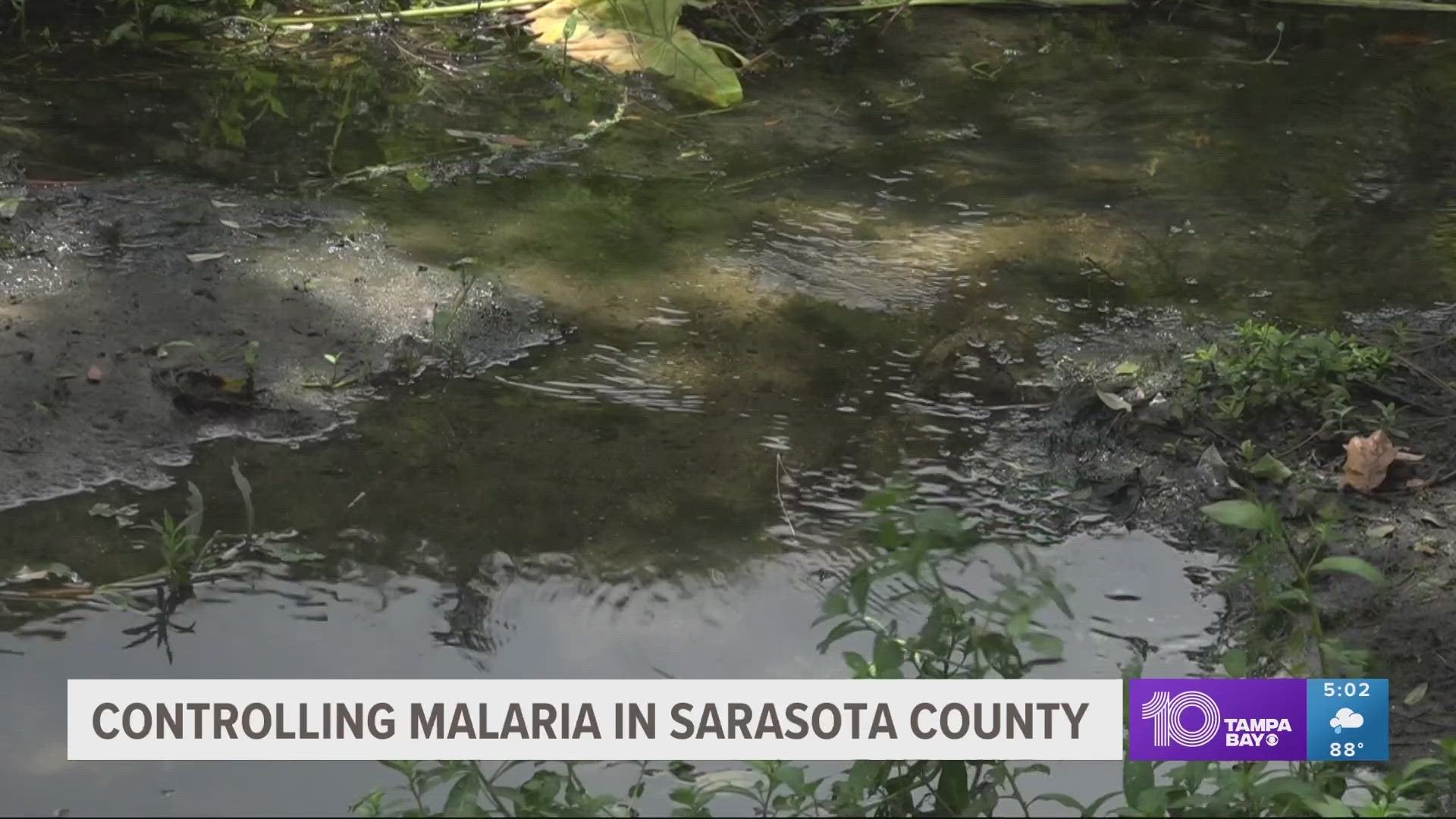SARASOTA, Fla. — A statewide mosquito-borne illness alert is still active in Florida after six confirmed cases of malaria in Sarasota.
The county's mosquito control unit is focusing spraying efforts in the northern part of the area, including Desoto and the Kensington Park area.
Leaders with the Sarasota Mosquito Management Services say so far, they've only found three mosquitoes with the malaria parasite. The insects were collected from the area of concern where the cases have been concentrated.
"We haven't had any more positive pools since the beginning of June so we're up to three pools that have been positive for malaria and confirmed by the CDC," Wade Brennan manager of the county's mosquito management, said.
Teams have sent more than 120 mosquito pool samples to the CDC every week since the discovery of the first case in late May.
They continue to ramp up spraying to contain and eventually eradicate the disease-carrying vectors.
"Our target is still Anopheles crucians and Anopheles quadrimaculatus. These are the only two mosquitoes that can actually transmit malaria to humans. Remember, this is a disease that actually goes from human to mosquito," Brennan said.
Teams have sprayed more than 470 miles by trucks at nighttime and covered around 36,000 acres.
"Anopheles mosquitoes like old water where you have all vegetation on the side and that's our target we're looking for. We're going through those areas screening every single swap, every canal," Brennan said.
Officials are encouraging families to take precautions and protect themselves from getting mosquito bites.
"We always recommend that people look around their yard and try to empty out any pots or other things that might be holding standing water to decrease the breeding of these mosquitoes," Dr. Katherine Clements, an ecologist with the University of Florida's Institute of Food and Agricultural Sciences, said
Clements said climate conditions are creating an enabling environment for uncommon species.
"As temperatures and other things about our ecosystems change, then it does open the door, potentially for those ranges of those species to be able to ship," Clements said.
Officials said the life cycle of malaria-carrying mosquitoes takes around four weeks. They are looking for a clean 90-day window from the last confirmed case to consider the outbreak over.

